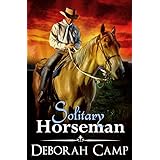INFECTIOUS READING
by Deborah Camp
by Deborah Camp
I
recently read an interesting article by the ever-interesting novelist Neil
Gaiman about the importance of reading. Often, I see posts on Facebook and
other places wherein people fret about the younger generations not appreciating
reading and preferring to play video games. This fretting flies in the face of
huge sales of Harry Potter books and many other adventure novels aimed at
children and teens.
I'm of a
mind that there will always be avid readers, just as surely as there will
always be those who can't bring themselves to read more than a caption under a
photograph or instructions on how to play a new game.
Gaiman
quotes Rebecca Solnit, who asserted that "a book is a heart that beats in
the chest of another." That's so very true, and it's why many people not
only enjoy books, but also films, TV, and video games. A book, however, gives
you a wholly different journey because, when done well, it allows you to know
someone else's mind, feelings, and experiences. You don't just
"watch." You live and breathe with a character or characters.
As Gaiman
puts it, "books are the way we communicate with the dead. The way that we
learn lessons from those who are no longer with us, that humanity has built on
itself, progressed, made knowledge incremental rather than something that has
to be relearned, over and over. Fiction is the lie that tells the
truth..."
He
cautioned against preaching and writing what you wouldn't be that interested in
reading. Difficult tasks. That might surprise some, but writers know it's true.
The need to "preach" hinders us all. We have beliefs and truths we
want to present in every novel, but if we hammer home these
"lessons," we risk alienating our readers. Likewise, every writer has
written "fluff" to fill out a book. Fluff is usually scenes that go
on too long and serve no real purpose other than to add pages, relating
information the writer has recently learned and feels compelled to share even
it's boring to others, or fascinating facts that end up stopping the book's
narrative. To take the editing pen and strike out paragraphs and whole pages
takes courage, but is necessary. Like cutting out a cancerous growth.
Lessons
or ideas should be sprinkled in, rather than poured into book pages. Otherwise,
you will over-season and ruin your original, good recipe for a well-told tale.
In my new
novel. SOLITARY HORSEMAN, I dealt with three "lessons." With so many,
it was a delicate mission to keep them under rein so they didn't trample my
story. Throughout, I had to remind myself why we read -- to immerse ourselves
in another place, time, and body, so that we emerge different than when we
entered that fictive world. Also, and this is no small thing, to entertain and
delight. When I write, I craft scenes that I hope will compel readers to keep turning
the pages, but also to elicit smiles, frowns, and maybe even a giggle or
longing sigh. This happens when readers "become" the characters; when
they forget where they are and what they're doing and take breath for breath
with the character in the book.
I recall
when I read THE STAND by Stephen King. In it, a deadly disease was killing off
most of the population and symptoms started off with people coughing. I had
been reading the book during my break at work. When I went back to work, a
co-worker walked past me and coughed. My heart froze and my gaze snapped to the
person as a sickly fear slithered through my mind with the thought, He's
infected! Of course, in the next instant I was back in my own world and
laughing at myself even as I marveled at Mr. King's ability to wrap me up so
tightly in his fictive world.
That my
friends, is talent. And that is also why we read.
~~~~~~~~~~~~~~~~
Deborah Camp's Newest:
 |
Series below features psychic detectives Levi Wolfe and Trudy Tucker:



No comments:
Post a Comment